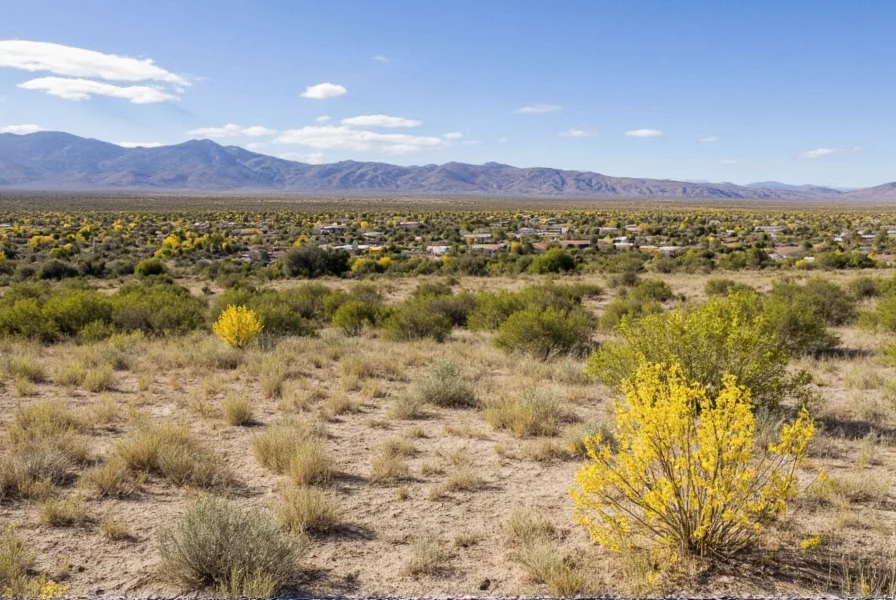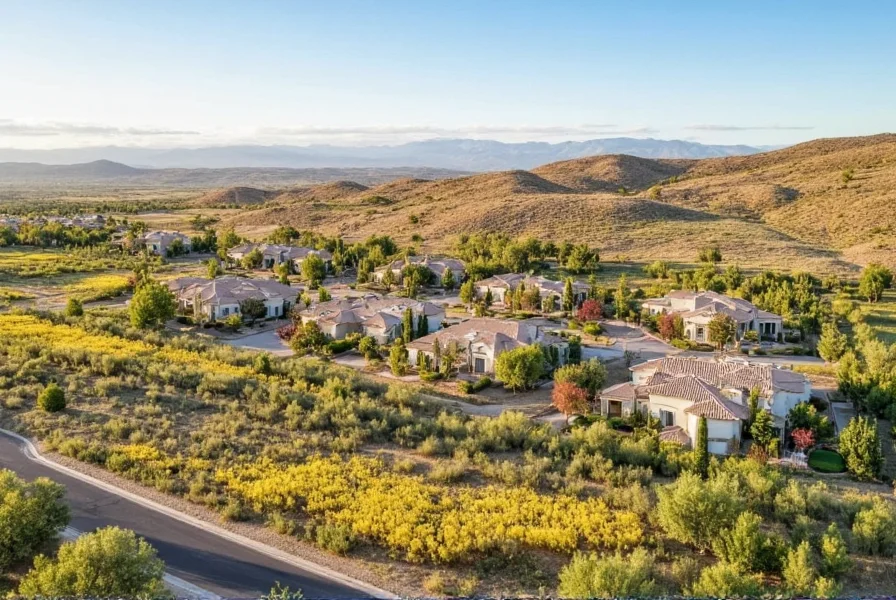For those researching relocating to Saffron Patch Valley or exploring Menifee Valley residential communities, this guide provides essential insights about this distinctive neighborhood. Understanding the unique characteristics of Saffron Patch Valley helps prospective residents evaluate whether this community aligns with their lifestyle preferences and housing needs in Riverside County.
Geographical Context and Development History
Situated in the northern part of Menifee, Saffron Patch Valley represents one of several master-planned communities that have transformed the Menifee Valley region over the past two decades. The community's development began in the early 2000s as part of Menifee's rapid expansion following its incorporation as a city in 2008. Unlike many neighboring developments, Saffron Patch Valley was designed with deliberate attention to preserving natural desert landscapes while creating family-friendly residential spaces.
The name "Saffron Patch" references the golden-hued wildflowers that occasionally bloom across the surrounding hillsides during favorable rainfall seasons, creating striking visual patches of color against the typical desert backdrop. This distinctive naming convention reflects the community's emphasis on connecting residents with the natural environment of Southern California's Inland Empire region.
| Community Feature | Details | Benefit to Residents |
|---|---|---|
| Housing Types | Primarily single-family homes (1,800-3,200 sq ft) | Family-oriented living spaces with yard areas |
| School District | Murrieta Valley Unified School District | Consistently high-performing educational institutions |
| Recreational Facilities | 4 community parks, 8 miles of walking trails | Outdoor activities without leaving neighborhood |
| Commercial Access | 15 minutes to major retail centers | Convenient shopping while maintaining residential tranquility |
Community Design and Residential Experience
Saffron Patch Valley distinguishes itself through thoughtful community planning that balances suburban comfort with Southern California's natural environment. The neighborhood features winding streets that follow the natural topography rather than imposing rigid grid patterns, preserving sightlines to distant mountain ranges while creating a sense of seclusion within individual home sites.
Residents particularly appreciate the community's strategic separation from major thoroughfares, which significantly reduces traffic noise compared to neighboring developments. The community association maintains strict architectural guidelines that ensure cohesive design elements while allowing for individual expression through landscaping and exterior finishes.

Natural Environment and Outdoor Recreation
One of Saffron Patch Valley's most valued attributes is its integration with the surrounding high desert ecosystem. Unlike many Southern California communities that completely replace natural landscapes, this neighborhood preserves significant portions of native vegetation and geological features. The community's eastern boundary connects to the Menifee Valley Preserve, providing residents with direct access to hiking trails that extend into the larger Santa Ana River watershed.
During spring months, residents enjoy the seasonal wildflower displays that inspired the community's name, with pockets of California poppies and other native blooms creating vibrant color contrasts against the typical desert palette. The community association organizes annual wildflower walks led by local botanists, enhancing residents' appreciation for the unique ecosystem they call home.
Practical Considerations for Potential Residents
Those considering moving to Saffron Patch Valley should understand both the advantages and challenges of this specific location. The community offers a quieter alternative to busier Riverside County cities while maintaining reasonable commutes to employment centers in Riverside, Murrieta, and Temecula. Current residents report average commute times of 35-45 minutes to major employment hubs, with convenient access to both I-215 and State Route 74.
Climate considerations matter significantly when evaluating living in Menifee Valley communities. Saffron Patch Valley experiences the typical high desert climate of the region, with hot, dry summers (average highs of 95-105°F from June through September) and mild winters (average lows of 40-45°F from December through February). The area receives approximately 12 inches of rainfall annually, primarily between November and March.
Community Engagement and Local Culture
Saffron Patch Valley has developed a distinctive community culture centered around family activities and neighborhood connection. The active homeowners association organizes regular events including summer concert series in the central park, holiday celebrations, and educational workshops about sustainable desert landscaping. These initiatives have fostered strong neighborly connections uncommon in many newer suburban developments.
The community's emphasis on outdoor living extends to its design of communal spaces, with multiple pocket parks featuring shaded seating areas, community gardens, and recreational equipment suitable for various age groups. This intentional design encourages spontaneous social interactions among residents, contributing to the neighborhood's reputation for being particularly welcoming to families with school-aged children.
Evaluating Saffron Patch Valley for Your Needs
When determining whether Saffron Patch Valley meets your relocation criteria, consider how your lifestyle preferences align with the community's characteristics. Families seeking quality schools, outdoor recreation opportunities, and a strong sense of community often find this neighborhood particularly appealing. The community's relative distance from major urban centers provides a quieter living environment but requires careful consideration of commute times to workplaces.
Potential residents should visit during different times of day and seasons to fully appreciate the community's atmosphere. Morning and evening visits reveal the neighborhood's traffic patterns and noise levels, while seasonal visits demonstrate how the landscape transforms throughout the year. Speaking with current residents through community association events provides invaluable insights that online research cannot replicate.











 浙公网安备
33010002000092号
浙公网安备
33010002000092号 浙B2-20120091-4
浙B2-20120091-4